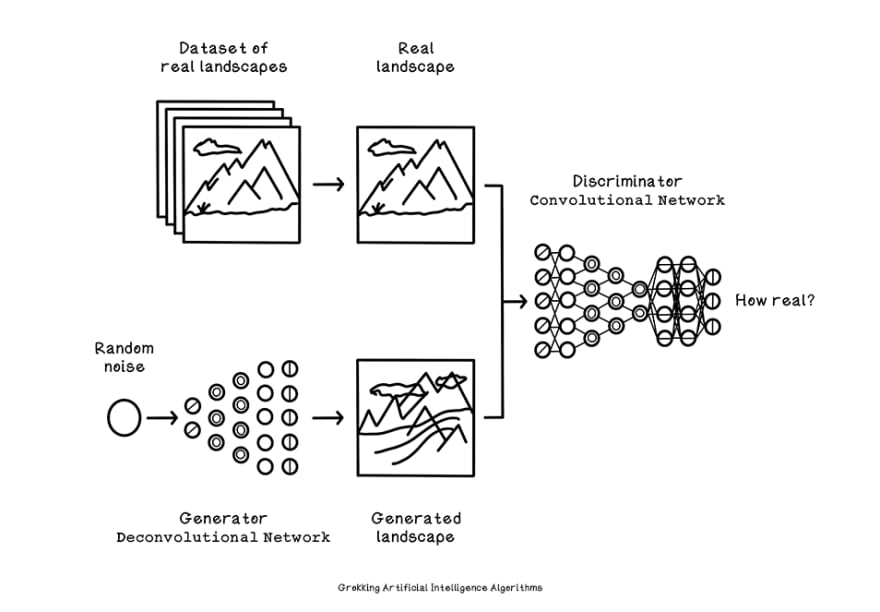This content originally appeared on DEV Community and was authored by Rishal Hurbans
Artificial neural networks (ANNs) are versatile and can be designed to address different problems. Specific architectural styles are useful for solving certain problems. Think of the architecture as being the fundamental configuration of the network.
Convolutional neural networks (CNNs) are designed for image recognition. These networks can be used to find the relationships among different objects and unique areas within images. If you’ve ever searched for an image online, you have likely interacted indirectly with a CNN.
Whereas standard ANNs accept a fixed number of inputs, recurrent neural networks (RNNs) accept a sequence of inputs with no predetermined length. These inputs are like spoken sentences. RNNs are useful in applications pertaining to speech and text recognition and prediction.
A generative adversarial network (GAN) consists of a generator network and a discriminator network. For example, the generator creates a potential solution like an image or a landscape, and a discriminator uses real images of landscapes to determine the realism or correctness.
GANs can be used to generate convincing fake images and videos (also known as deepfakes), which raises concern about the authenticity of information in the media. They can also be used in extraordinary ways for CGI for movies.
Learn more about artificial neural networks in Grokking AI Algorithms with Manning Publications: http://bit.ly/gaia-book, consider following me - @RishalHurbans, or join my mailing list for infrequent knowledge drops: https://rhurbans.com/subscribe.
This content originally appeared on DEV Community and was authored by Rishal Hurbans
Rishal Hurbans | Sciencx (2021-12-08T09:56:10+00:00) Introduction to purpose-specific neural networks. Retrieved from https://www.scien.cx/2021/12/08/introduction-to-purpose-specific-neural-networks/
Please log in to upload a file.
There are no updates yet.
Click the Upload button above to add an update.





